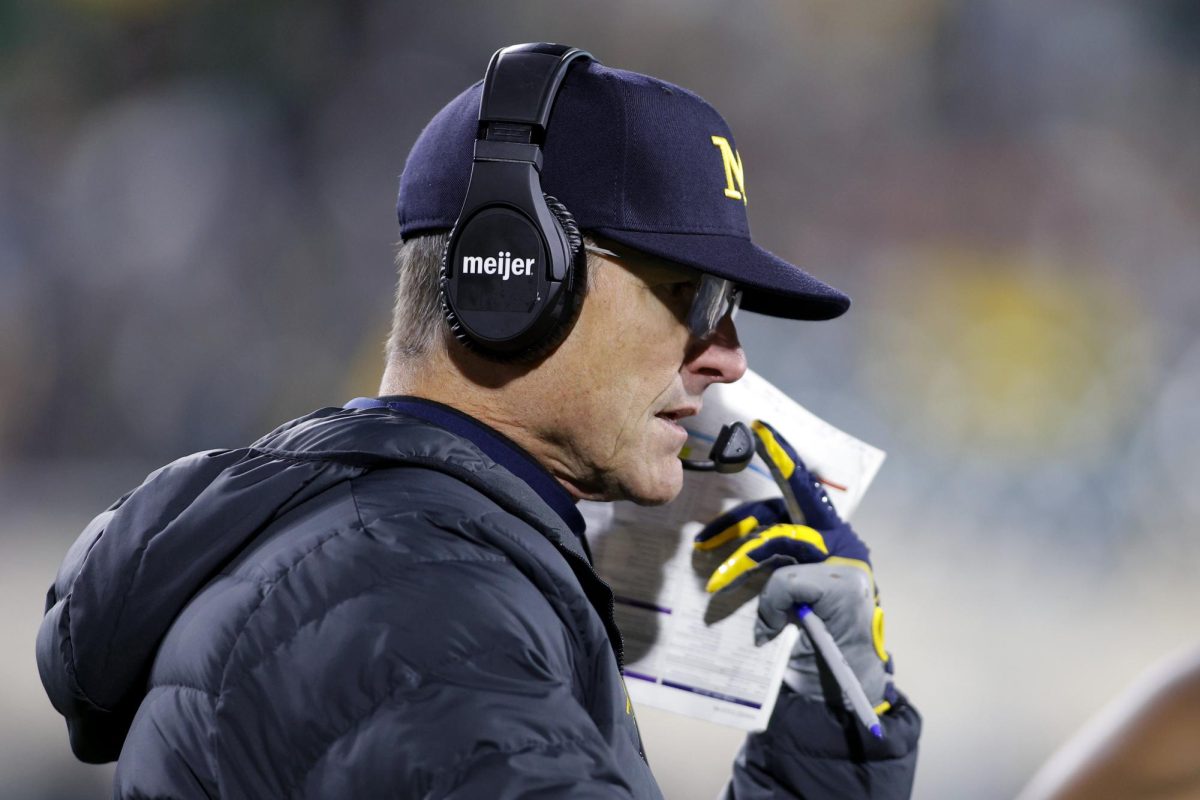Michigan University is one of the most famous college football teams in the country, with a very dedicated fanbase. Michigan has historically been a great team with nine national championships, the most recent from 1997 and none from the BCS (Bowl Championship Series) or the College Football Playoff eras. In the last few decades, Michigan hasn’t lived up to expectations, falling short of championships and playoffs, leaving fans frustrated. However, in the last few years, Michigan has risen to the top of the college football world, giving fans hope that they will finally bring back another championship to Ann Arbor. Up until 2021, Harbaugh’s Wolverines were struggling to get above a ten-win season and be in contention for the playoffs. However, last season, they beat Ohio State University on the road, won the Big Ten and made their second consecutive playoff appearance. This year, Michigan is currently ranked second in the country with an 8-0 record with their sites set on the national championship.
However, Michigan’s recent success could be due to cheating. On Oct. 19, the Big Ten confirmed that the NCAA is investigating Michigan for sign stealing, as reported in The Washington Post. While sign stealing itself is not illegal in the NCAA, NCAA bylaw 11.6.1 states that “Off-campus, in-person scouting of future opponents (in the same season) is prohibited.” This rule was enacted to create fairness among well-funded teams and those with fewer resources who wouldn’t be able to afford advanced scouting. The NCAA football rulebook also prohibits the recording of any signals given by the opposing team.
According to an Oct. 25 article in The Washington Post, the NCAA became aware of Michigan’s alleged sign stealing when an outside investigative firm approached them with evidence of the conspiracy. The firm alleges that Michigan used in-person scouting and video recording since at least last season to scout future opponents. During this time, Michigan went 13-1, beating rival Ohio State, winning the Big Ten championship and ultimately losing to Texas Christian University (TCU) in the College Football Playoff semifinals.
ESPN reported that a staffer named Connor Stalions is at the center of the investigation. Michigan hired Stalions as an off-field analyst in May of 2022, but Stalions has been around the program for years. It is reported that Stalions purchased more than 30 tickets at 12 of the 13 other Big Ten schools and four other games with teams that Michigan could likely face in the College Football playoffs. Michigan has since suspended Stalions, and coach Jim Harbaugh denied any knowledge of any scheme and said he, along with his staff, would fully cooperate with the investigation. However, people question whether what Harbaugh states is true, since pictures have emerged of Stalions, a low-level staffer, standing with Harbaugh and other top assistants, like the offensive and defensive coordinators, during games.
Last season, teams across the country had caught on to Michigan’s sign-stealing scheme. When the College Football Playoff matchups were announced last year, and Michigan and TCU were going to play in the Fiesta Bowl, TCU coaches got calls from across the country that Michigan had an elaborate sign-stealing scheme. Teams warned TCU to change all their signs because Michigan likely already knew them. TCU then changed all their signals and used the old signals to call fake plays to try and trick the Wolverines. TCU ended up beating Michigan 51-45 even though Michigan was favored by over a touchdown.
It is unclear how the investigation will turn out. Even though the evidence feels strong, NCAA investigations often take months to years, and it is unlikely there will be a conclusion before the end of the season. Unless there is a major change in the investigation, it is unlikely that the probe will impact Michigan’s chances of getting into the College Football Playoffs or the rest of the 2023-2024 season. It is also unclear what sort of punishment Michigan and staff members could face. In the 30 years in-person scouting has been illegal, there has not been a case of this severity, according to ESPN, so there is no precedent. The rulebook also doesn’t state a punishment for breaking the in-person scouting rule. Based on other NCAA rulings, if Michigan is found guilty, the penalty could range from fines, suspensions of personnel, suspensions from bowl game contention and vacations of wins during the scheme. ESPN stated that the NCAA investigation likely won’t conclude before the start of the 2024-2025 season, so we will have to wait and see how the rest of Michigan’s season and the results of the investigation play out.














